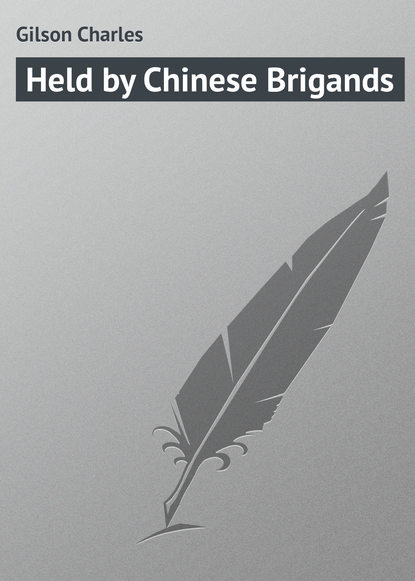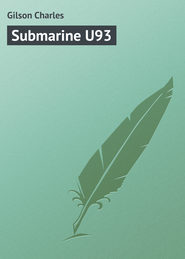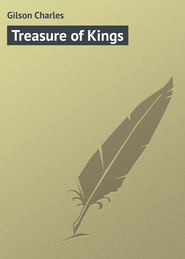По всем вопросам обращайтесь на: info@litportal.ru
(©) 2003-2025.
✖
Held by Chinese Brigands
Настройки чтения
Размер шрифта
Высота строк
Поля
Ah Wu seated himself upon the couch, immediately above the body of the murdered man. Placing his elbows upon his knees and his head between his hands, he rocked himself from side to side. As for Frank, the whole thing seemed to him like some terrible nightmare. He had lived in China all his life, but he had lived in a different China-a land of comfort and civilisation. This was a world of devilry and crime. And all this time Yung How stood by, motionless, speechless, his face pale with terror.
Ling stooped down and thrust the body under the couch.
"What is death?" he asked. "A sleep-no more. A long sleep in which-for aught we know-the divine spirit roams the eternal heavens. Sweeter by far the adventures of the soul than the dreams that come from opium. A moment since he slept upon the couch, and now he sleeps beneath it. Why grieve, old fool? Why weep? Men-Ching is already with the spirits of his fathers."
Taking the key from his pocket, he unlocked the door.
"Come," said he. "We will hold converse together; there are many things that I wish to discuss. See that the outer door is locked, that no one is allowed to enter the house. We four will be alone."
CHAPTER XV-OF CHEONG-CHAU'S MESSENGER
To the reader who is unacquainted with China, the conduct of Ling may appear to be highly improbable. In any other country in the world such a crime might be committed, but in no other country would the criminal not be seized with alarm. He would know that there was direct evidence against him and, in consequence, he would be obliged either to fly for his life or else stand his trial on a charge of murder or manslaughter, as the case might be.
In this regard China is unique-a country without police, in which evidence is extremely hard to obtain, no man presuming to testify against his neighbour. Under the old imperial regime there were no real courts of justice beyond the summary jurisdiction exercised by the local government official-the prefect, the tao-tai or the viceroy. And so far as we are aware, these very necessary reforms have not yet been instituted in the modern republican China of the twentieth century.
Ling had little or nothing to fear. Men-Ching had no relations who might carry the tale to the viceroy's yamen. Both Ah Wu and Yung How had been frightened out of their lives, and the Honanese had no apprehensions in regard to the unfortunate boy whom he had kidnapped in Sanshui.
In less than a minute after this deed of violence had been accomplished, Ling was sprawled at his great length upon one of the couches in the outer room. There, puffing complacently at a pipe of opium, he appeared to have dismissed the incident from his mind. He was busy making plans for the future. Ah Wu had now sufficiently recovered his composure to attend to the wants of his unwelcome guest. He brought Ling opium; he lighted the spirit-lamp; he rolled opium pills in his fat little fingers.
To all intents and purposes, Ling had taken complete possession of the opium den. He himself might have been the proprietor. He offered Yung How a pipe of opium, which Yung How accepted. He ordered Frank to be seated, and the boy had no option but to obey. Then he delivered himself as follows, addressing himself to Ah Wu.
"Ah Wu," said he, "I desire that you will be so good as to make a complete confession. There are certain details connected with this affair concerning which I am completely in the dark. For instance, who was to go for the treasure to the Glade of Children's Tears?"
"I was," said Ah Wu.
"Alone?"
"No. Yung How was to accompany me." And Ah Wu indicated his Hong-Kong friend by a motion of the hand. "We were to hire a junk in which to take away the money. We were to be assisted by Men-Ching and another man."
Ling looked across at Yung How and nodded pleasantly.
"And so, my tame cat, your name is Yung How. A fit name for one who washes plates and brushes a foreigner's clothes."
"I do not wash plates," said Yung How; "that is coolies' work."
"I beg your pardon," said Ling. "Since it is beneath your dignity to wash plates I am sorry for you, for presently I propose to eat at Ah Wu's expense. And you shall wash the plates which it shall be my pleasure to use."
Yung How made a wry face, and dropped his eyes to the ground. Frank observed that the man muttered to himself.
The boy was astonished that Yung How had not yet recognised him. Was it possible that he would fail to do so? The thought seemed too good to be true. On the other hand, it was possible that Frank had already been recognised, that Yung How knew who he was, and had managed to conceal his surprise. The average Chinese is quite capable of such extraordinary self-control. The boy's train of thought was interrupted by Ling, who took up the thread of his cross-examination.
"And so," said he, "you, Ah Wu, and Yung How, were to go together to the Glade of Children's Tears, having first ascertained that the neighbourhood was safe, that the foreigners in Hong-Kong had not thought fit to send armed men to capture you?"
"That is so," said Ah Wu.
"And the money was to be brought here by river?"
Ah Wu nodded. "To Canton," said he.
"Where Cheong-Chau would come by night, giving you your share and taking the rest back with him to Pinglo, to divide amongst his gang?"
Ah Wu nodded again.
"A simple business," said Ling. "A well-laid plot that has come to grief. Well, I am generous. My soul is of honey. I am soft of heart. You will find me a better master than Cheong-Chau. I can be generous to those who help me, as I know how to deal with those who declare themselves my enemies." And he jerked a finger in the direction of the little room beneath the stairs.
"Do you mean," asked Yung How, "that you propose to buy our silence?"
The man rose upon his couch like a bearded lion.
"I mean nothing of the sort," he cried. "Go to the viceroy if you will and tell him that you saw Ling take the life of Men-Ching in the opium den of Ah Wu-say I murdered the man. It will be a lie, I tell you. He attempted to stab me and I killed him in self-defence. Still you are free to go to the yamen with any tale you like, and when you have fulfilled your errand, I tell you frankly, upon the word of a man who holds the truth as sacred, that you shall not live for forty-eight hours. That is the manner of man I am, and that is the way in which I buy your silence."
Yung How did not move a muscle of his face.
"Then I fail to understand you," said he.
"I will make my meaning plainer," said the other. "This afternoon I send these letters to Hong-Kong by post, by the night boat. They will arrive to-morrow morning. In two-or at the most three-days, the ransom will be paid: twenty thousand dollars will be conveyed by some means from Hong-Kong to the Glade of Children's Tears. I think no soldiers will be sent because the Englishman in his letter has expressly stated that such a course would not be wise."
At that moment there came a loud, persistent rapping on the outer door, which Ah Wu had already locked. Ling at once ceased talking, but it is a singular fact that he was the only one of the four of them who showed no signs of being alarmed. They sat in silence, listening for several minutes, during which time the knocking upon the door continued. It was Ling who was the first to speak.
"Who is there?" he asked, addressing himself to Ah Wu.
"I have no idea," replied Ah Wu.
Ling got to his feet, strolled across the room, and drawing the curtains, unbolted the door. On opening it he beheld, standing before him upon the threshold, a man dressed in the scarlet coat of Cheong-Chau's brigand band.
"What do you want?" asked Ling.
"Men-Ching," said the man.
"And who, may I ask, is Men-Ching?"
"He is a friend of mine."
"He is not here," said Ling. "You can come in, if you like, and see for yourself."
The man entered the opium den, advancing down the centre of the room. Frank recognised him at once: he was the man who had accompanied Men-Ching upon his journey from the mountains. He went straight up to Ah Wu, to whom he bowed, folding his hands in accordance with the custom of his nation.
"You, I believe, are Ah Wu?" he asked. "You are the landlord of this establishment?"
"I am," said Ah Wu.
"I come for a friend of mine, Men-Ching by name. I think you know him. He told me he would be here."
"He is not here," said Ah Wu, who, palpably nervous, from time to time glanced in the direction of Ling.
"That is strange," said the man. "He certainly told me that I should find him here. Can you tell me where he is?"
Ah Wu shook his head. "I cannot say," said he.









